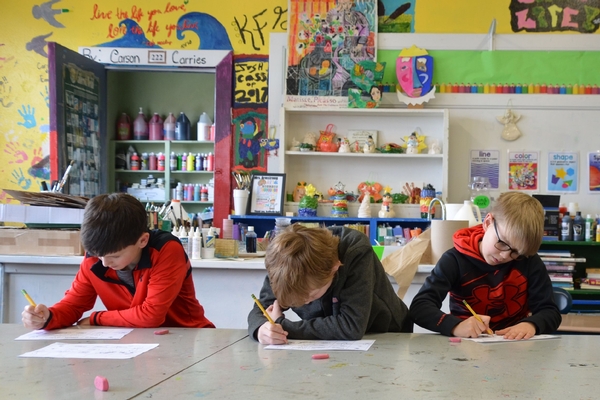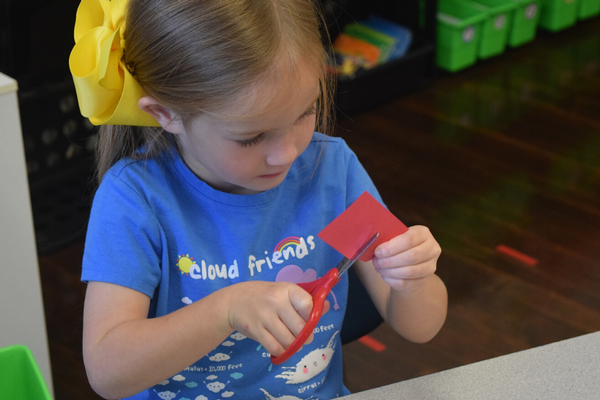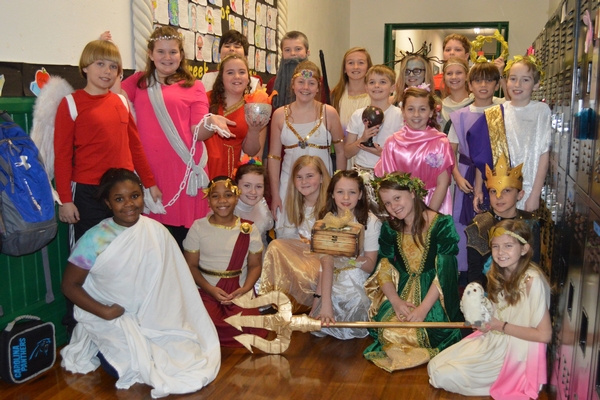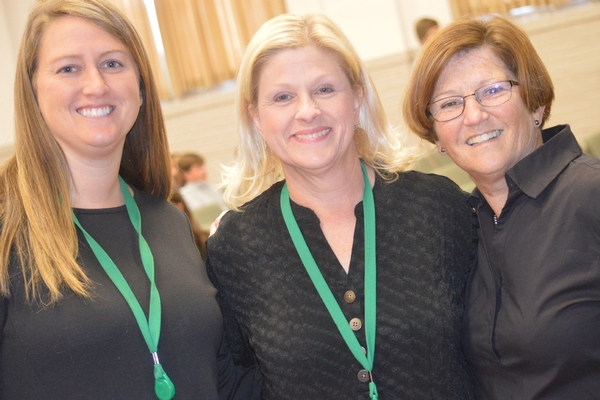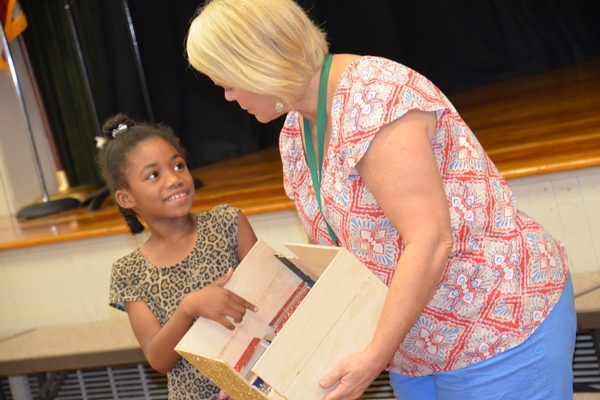Language Arts
With the implementation of a strong phonemic awareness program through Abeka and Letterland, students in grades K-2 begin learning letter sounds, blends and sight words, then progress to independent reading and comprehension. Our program combines phonics, spelling, handwriting, and composition to develop fluent readers. We also utilize the Reading Counts program to build comprehension and critical thinking skills. In grades 3-5, students integrate reading with spelling, vocabulary development, handwriting, and composition, with emphasis on comprehension, critical thinking skills, and independent study. As we have since the school's beginning, HCA teaches the art of cursive writing. In comparison to print writing, cursive skills have been recognized to enhance different parts of brain, further increase fine-motor skills, and increase scores and fluency in both reading and writing.
Math
Students in Kindergarten work with number concepts, number families, counting, addition families, telling time, money, subtraction, and measurement. Students in grades 1 and 2 continue to develop these math skills using the Abeka math program. In grades 3-5, mathematics is taught with EnVision Math with an emphasis on multiplication, division, fractions, reasoning, and more. All lower school math classes are enhanced with skill/drill and foundational concepts that increase mathematical learning and comprehension. Using a blend of many programs to promote the development of progressively complex math skills at each grade level, HCA builds the whole child. Higher order problem solving is reinforced by exposure to word problems, charts and graphs, as well as data interpretation.
Science
The HCA science program covers concepts in life, earth, and physical sciences that progressively build in complexity with each grade level. Each week, students experience hands-on activities in our innovative Lower School STREAM and STEAM Labs where students conduct, design, and evaluate hands-on experiments. The STREAM Lab focuses on science, technology, reading, engineering, art, and mathematics with students in grades K-2. Each week, the teacher begins by reading a book and then extends the lesson through various hands-on activities which promote creativity, critical thinking and problem solving skills. The Smithfield STEAM Lab incorporates science, technology, engineering, art/agriculture, and mathematics through a variety of research, technology, engineering, and robotics lessons. This integrated approach helps to extend learning, ignite curiosity, and captivate interest. Grades 3-5 visit the Smithfield STEAM lab twice a week.
Social Studies
During grades K-3, students learn about family, neighborhoods, local communities, historical figures, and holidays. Students begin formal social studies classes in 4th grade. Grades 3-5 utilize the Kids Discover social studies program, which has online resources such as primary source documents and maps to enhance instruction.
Resource Classes
Physical Education
Art
Library and Research Skills
Science/STEAM Lab (3-5)/STREAM Lab (K-2)
Music
Extra-Curricular Activities
Jr. Beta Club (grades 4-5)
Theatre Production/ Yearly School Musical

